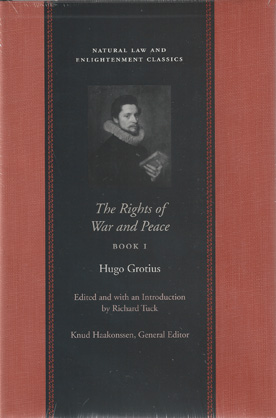
The device(s) you use to access the eBook content must be authorized with an Adobe ID before you download the product otherwise it will fail to register correctly.
For further information see https://www.wildy.com/ebook-formats
Once the order is confirmed an automated e-mail will be sent to you to allow you to download the eBook.
All eBooks are supplied firm sale and cannot be returned. If you believe there is a fault with your eBook then contact us on ebooks@wildy.com and we will help in resolving the issue. This does not affect your statutory rights.
Since the nineteenth century, Hugo Grotius' Rights of War and Peace has commonly been seen as the classic work in modern public international law, laying the foundation for a universal code of law. However, in the seventeenth century and during the Enlightenment, the work was considered a major work of political theory that strongly defended the rights of individual agents - states as well as private persons - to use their power to secure themselves and their property.
Grotius's continuing influence owed much to the eighteenth-century French editor Jean Barbeyrac, whose extensive commentary was standard in most editions, including the classic, anonymously translated, English one (1738), which is the basis for the Liberty Fund edition.
The present edition also includes the Prolegomena to the first edition of "Rights of War and Peace" (1625); this document has never before been translated into English, and adds new dimensions to the great work.